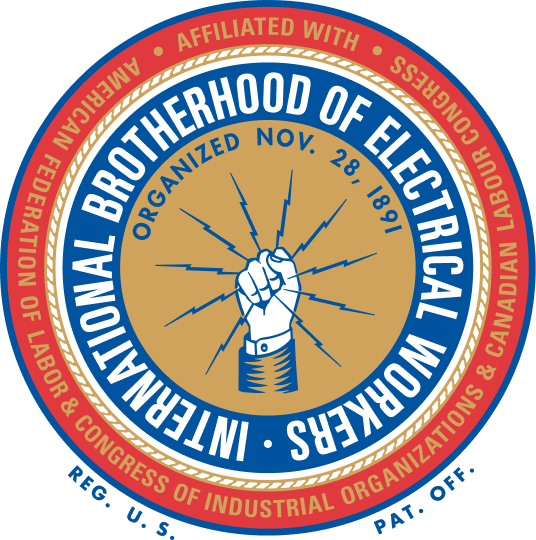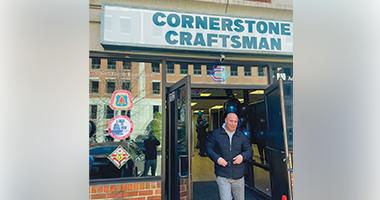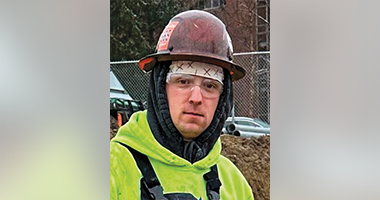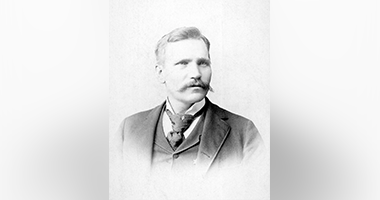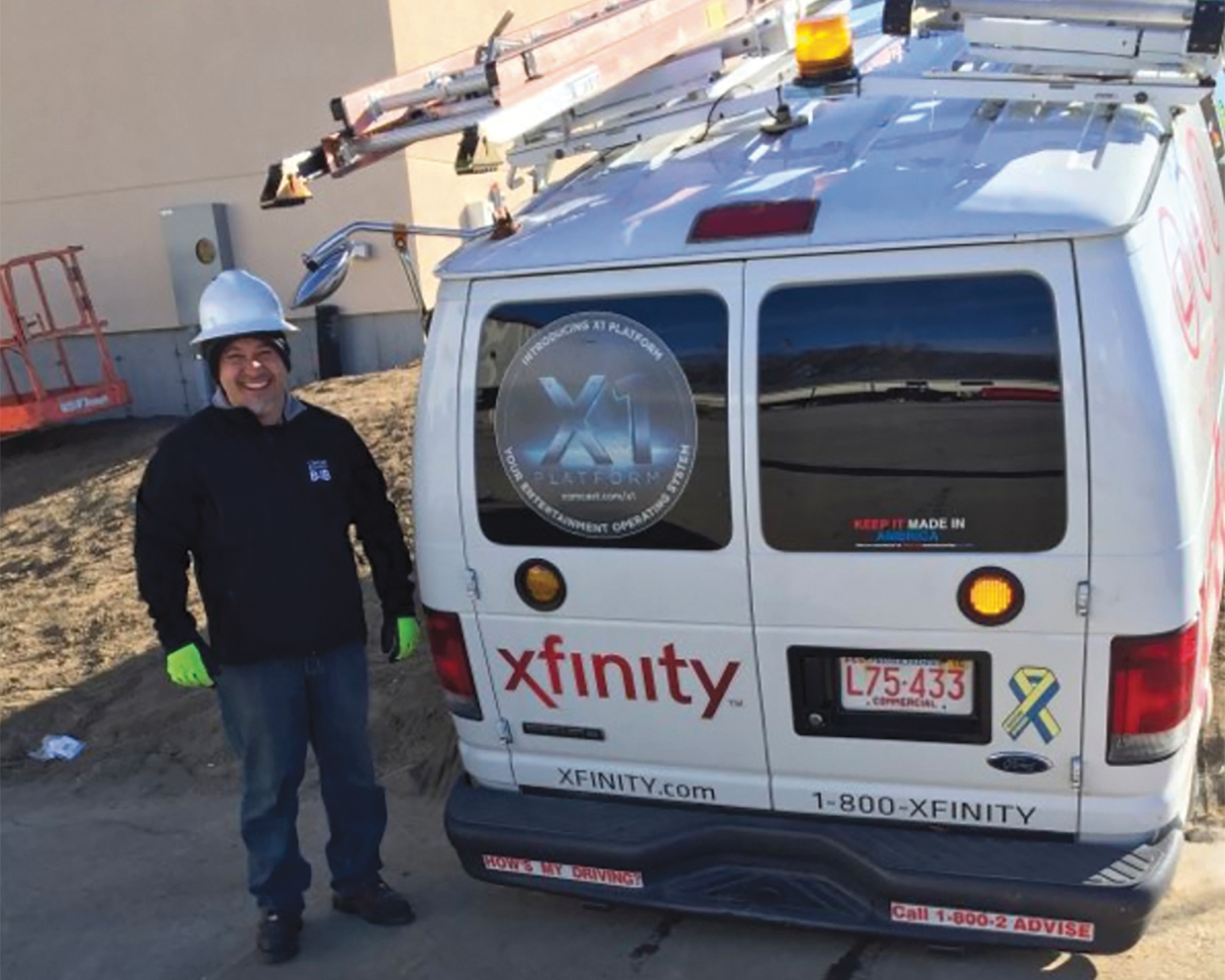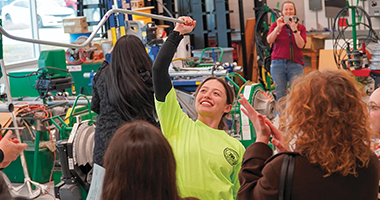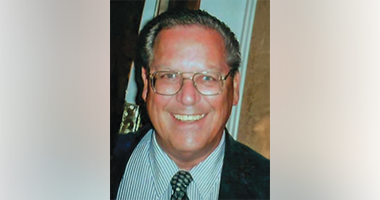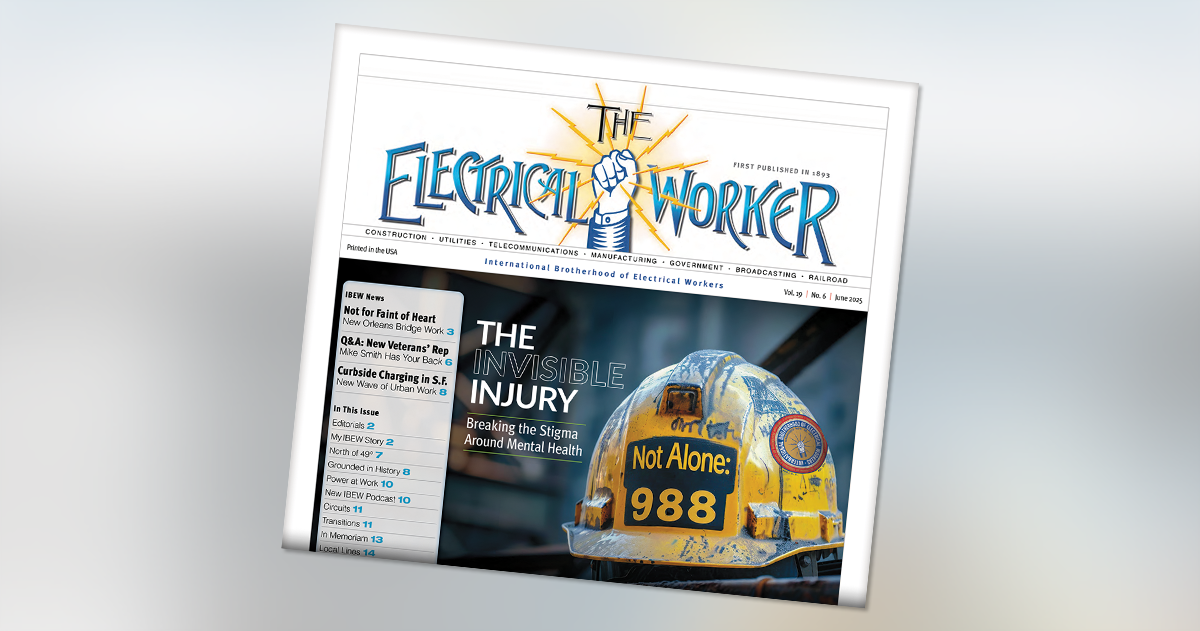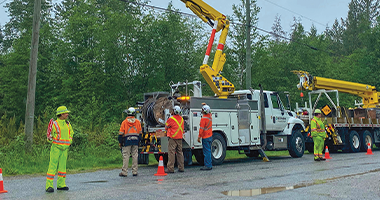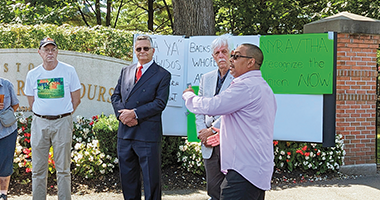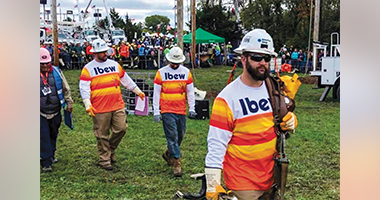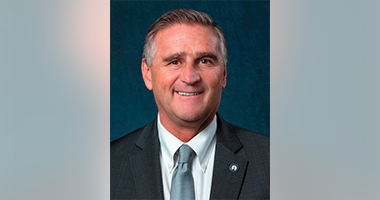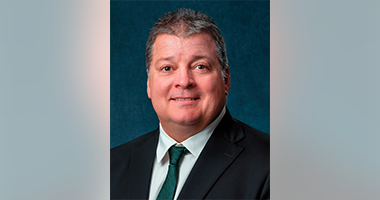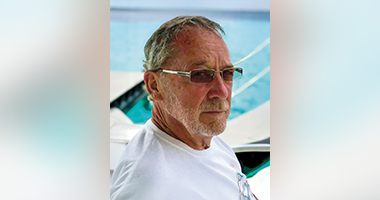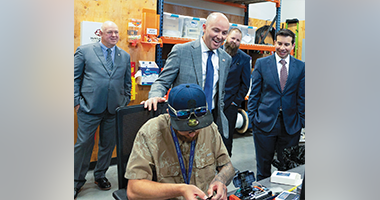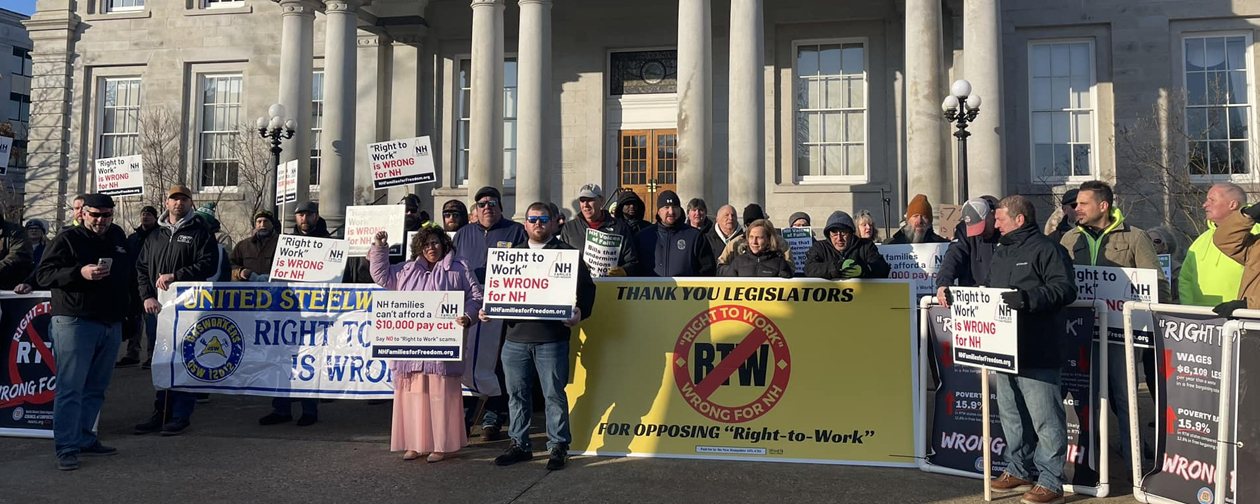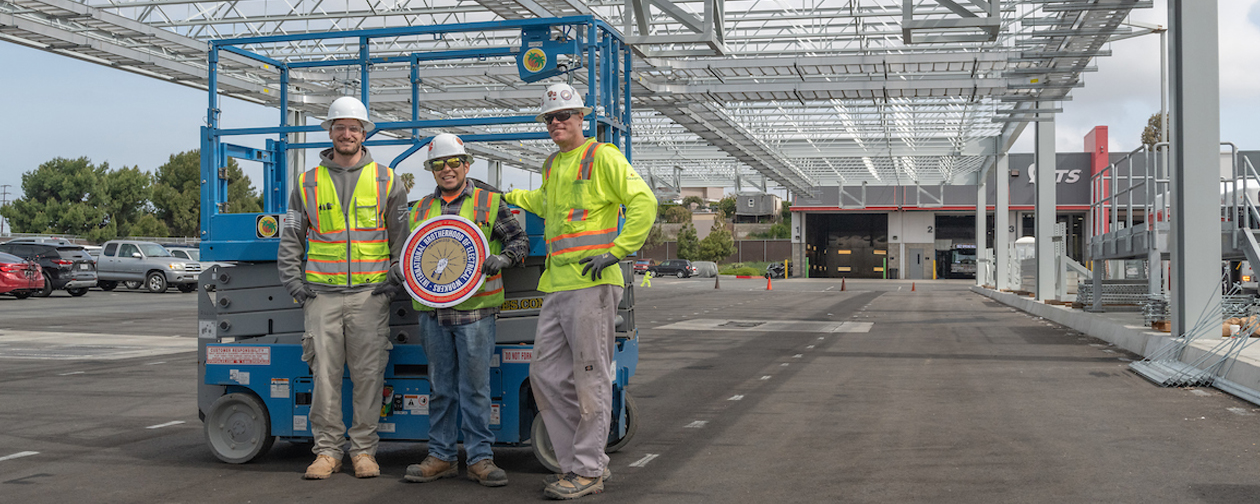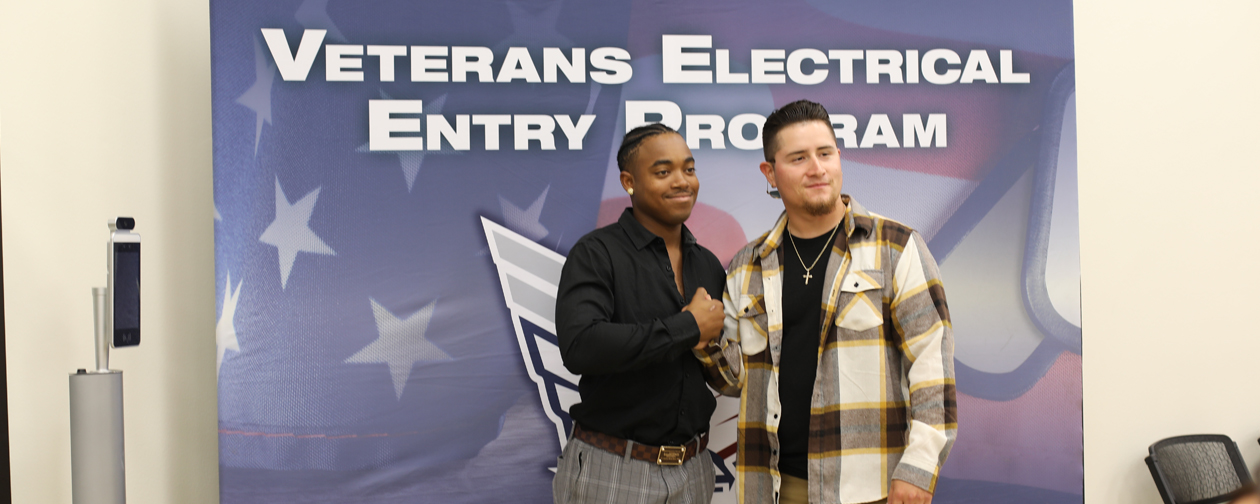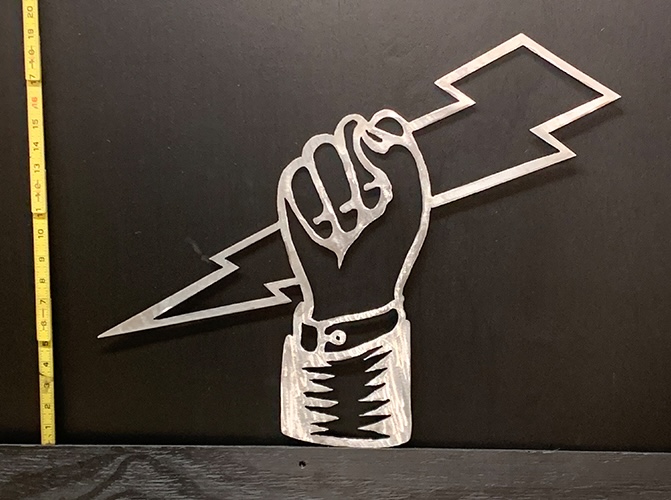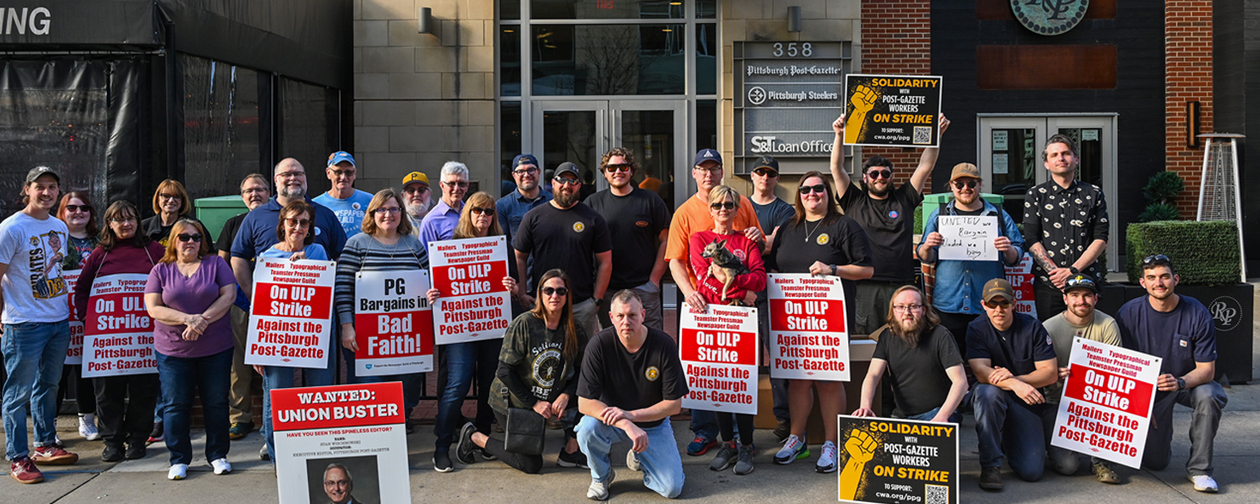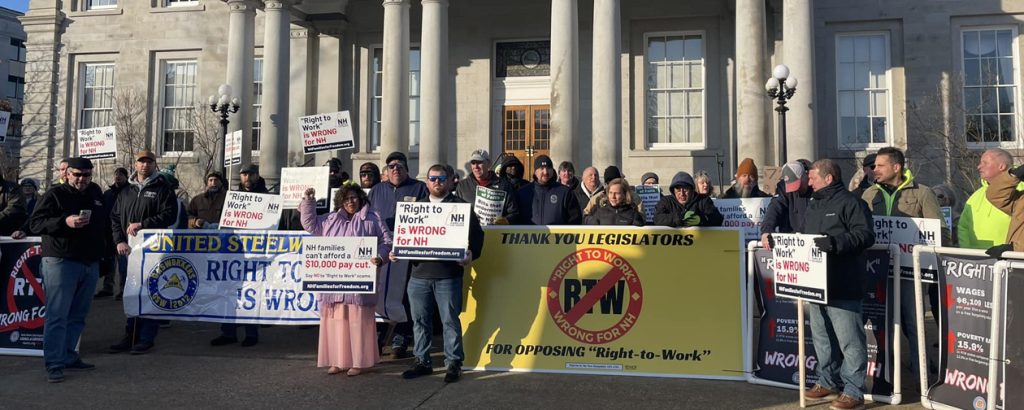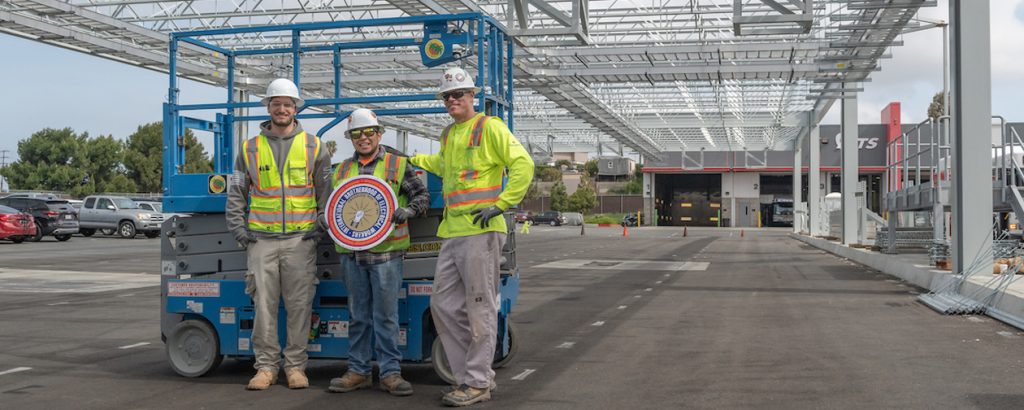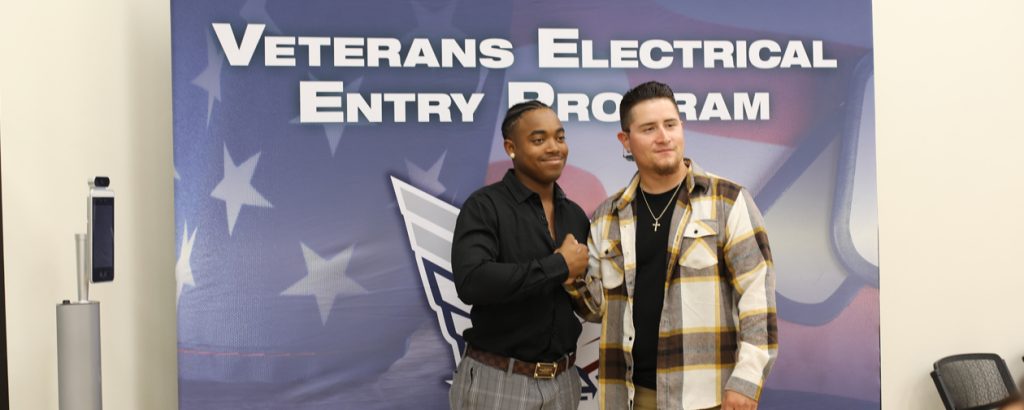The IBEW’s electrical expertise has never been limited to construction or line work. It’s been critical in utilities, transportation, broadcasting and the internet, among many other areas.
A new program is designed to expand that expertise to employers and partners in manufacturing, which once employed 350,000 IBEW members before being devastated by offshoring during the last five decades.
The National Clean Transportation and Advanced Manufacturing Electrical Training Trust is a tool to help with the comeback. It will prepare members for the industrial, manufacturing and technology jobs that are part of the clean energy economy.
A joint venture of the IBEW and management partners, the trust will develop training programs in conjunction with companies that employ IBEW members. It also will seek out employers that can benefit from the IBEW’s expertise and organize workers there.
“It’s a great opportunity to strengthen partnerships and bring manufacturing training to companies where there’s a need for it,” Manufacturing Director Brian Lamm said.
“This is a critical moment to equip workers with the skills needed to lead the future.”
– Dr. Kimberly Moore, executive director of the National Clean Transportation and Advanced Manufacturing Electrical Training Trust
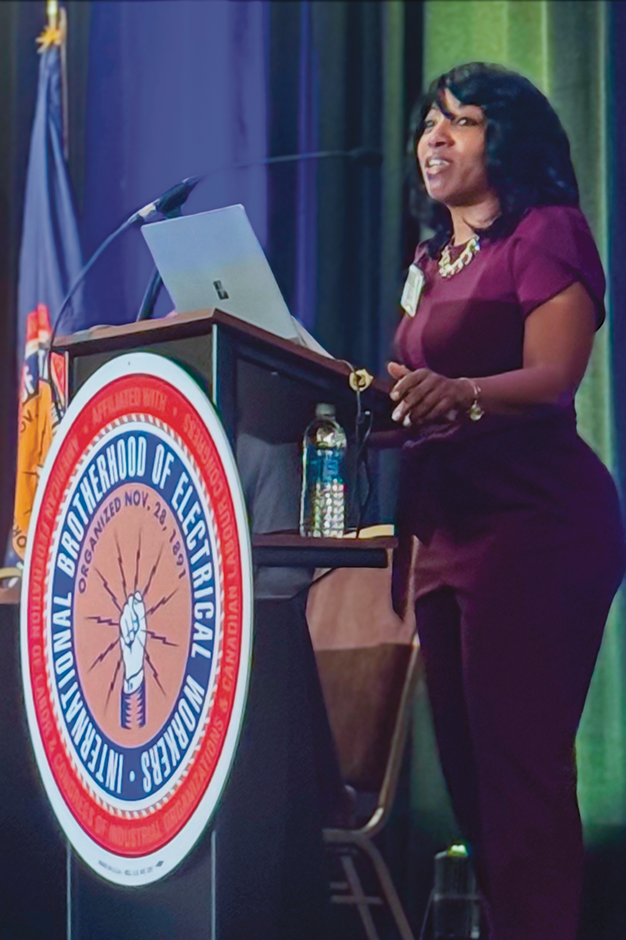
The program began in the Ninth District, where IBEW officials were studying how to best take advantage of the burgeoning electric vehicle construction market. The district includes California, Oregon, Washington, Alaska, Hawaii, Nevada and part of Idaho.
IBEW members have led the way when it comes to building EV charging stations, and Ninth District International Vice President Dave Reaves said the district’s local unions see opportunities to perform maintenance work on medium and heavy-duty electric vehicles that the original equipment manufacturer does not have the workforce for. The IBEW already represents transit and transportation members at many of these facilities.
The fund’s primary focus is on clean transportation, advanced manufacturing and electrical systems — all areas where the IBEW can leverage its established expertise. Building a better-qualified workforce will build stronger local communities, and the fund will look for ways to bring training opportunities to traditionally underserved populations.
“Advanced manufacturing and clean transportation work is all in the IBEW’s wheelhouse, and it’s all there for us to move forward with,” Reaves said. Much of this work began under John O’Rourke, his predecessor, who retired in 2022.
The IBEW has a long history when it comes to developing programs with employers in other sectors, perhaps most notably in outside construction and utility. The trust will replicate some of that work in manufacturing.
Lamm and Reaves said one of its most attractive elements for companies is that the IBEW is offering its assistance to set up a training program for specific locations, not just a company-wide initiative.
For instance, if a company has a facility that specializes in battery storage, the IBEW will work to develop a training program specific to that location. The Electrical Training Alliance, the IBEW’s longtime training partner, also will offer its expertise, Reaves said.
Lamm said it’s a win-win for the IBEW and employers.
“If the companies where we represent workers aren’t successful, we’re not going to have success, either,” he said. “We want all of them to be successful.”
Lamm, Reaves, Fourth District International Vice President Austin Keyser and Government Affairs Specialist Erica Fein are the IBEW’s representatives on the trust’s eight-member board of directors, appointed by International President Kenneth W. Cooper.
Jim Willson, executive director of NECA’s Los Angeles chapter, will be one of four management reps on the board. Three others are still to be determined.
“This new initiative provides the apprenticeship resources to support these training needs while also satisfying community benefit and workforce provisions for companies pursuing public grant funding,” Willson said.
Kimberly Moore, who has more than two decades of experience in workforce and economic development, was recently named the fund’s executive director.
She’ll help identify companies the IBEW can establish strategic partnerships with, including industry and cross-sector collaborations that benefit both the IBEW and the company. Lamm noted her experience in grant funding and administering those funds and identifying public funding sources as key skills in the new position.
“This is a critical moment to equip workers with the skills needed to lead the future,” said Moore, who earned her doctorate degree from Florida State University. “I look forward to working alongside our partners to empower our members with future-ready training.”
She continued: “I also look forward to providing employers with a skilled, adaptable workforce that strengthens our nation’s competitive edge in clean transportation, advanced manufacturing and the electrical trades that support them.”
Reaves said there were hundreds of applicants for the position and 14 finalists were eventually interviewed.
“Dr. Moore knocked it out of the park with her workforce training background,” he said. “Her ability to speak clearly and concisely to deliver the message we were looking for with this new trust clearly stood out.”
Reaves credited local unions along with Ninth District International Representatives Micah Mitrosky and Bob Brock for their work in developing the trust. He acknowledged that the national attitude around renewable energy has changed following last November’s U.S. elections, but there remain plenty of opportunities on the local and state level and in private industry for the IBEW.
Lamm agreed, noting that companies who were skeptical of a joint training program are “now coming to us asking for help because they see the need for it,” he said. “There’s nothing but opportunity ahead.”
